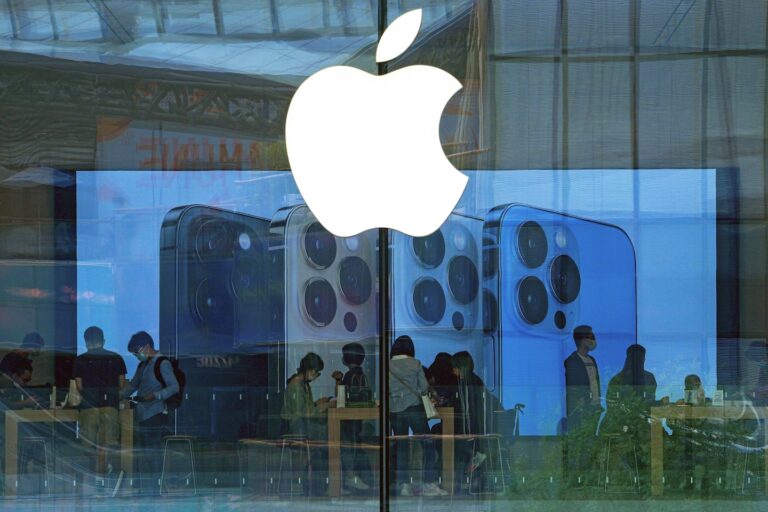This tension has been going on for years, but a new report examining Apple’s App Store in China shows its findings. The store lacks many apps that are available in other parts of the world, in part due to direct Chinese censorship. The report was produced by Greatfire.org, which monitors and challenges internet censorship in China, in collaboration with Article 19, a global advocate for freedom of expression.
Apps are a big part of our digital lives and commerce. According to Apple, the App Store has 1.8 million apps, 734.6 million average weekly visitors, 787 million average weekly downloads, and 52.6 billion average weekly automatic app updates. “The App Store is an economic miracle that benefits developers around the world,” Apple said in a statement. “In one year, it facilitated $1.1 trillion in commerce, $570 billion of which went to developers in China.” What Apple calls “Greater China,” which includes mainland China, Hong Kong, and Taiwan, is Apple’s third-largest region by revenue, accounting for 19 percent of Apple’s total sales last fiscal year.
China’s App Store is the most isolated in the world. According to the latest report, of the 108 most downloaded apps in the world, 55 are not available in China, and another nine are available but have been blocked by Chinese authorities, rendering them non-functional in China. These include Google Maps, YouTube, Instagram, WhatsApp, Telegram, Facebook, Messenger, Twitter (now X) and WhatsApp Business. The report also found that of the top 10 most downloaded apps in the world, none are available to Chinese users; five are not on the App Store and five are available for download but blocked.
Games are the largest app category in the world, so it’s not surprising that they make up the largest group of apps unavailable in China. Games are subject to China’s strict licensing requirements. According to the company’s 2023 App Store Transparency Report, the Chinese government made 1,285 app removal requests to Apple last year, of which 1,067 were gaming apps that were removed for not having the legally required licenses.
Virtual private networks, which allow users inside China to get past the Great Firewall and access the internet outside China, are the main category of apps that are unavailable in China. VPNs require state approval, the new report states. Apple removed major VPNs from its App Store in 2017. Also unavailable in the App Store are privacy and digital security apps that offer services like safe browsing, encryption, protection from cyber threats, and mobile security. A third group that is hard to find are social media and communication apps that are unavailable or blocked, including Skype, Viber, Telegram, Signal, and WhatsApp. The list of censored news apps is long and growing. Chinese authorities frequently ask Apple to remove them in response to coverage of Chinese politics and current affairs that they deem harmful, the report states. Many religious apps are also unavailable in the App Store. Not only those related to Tibet and Buddhism, but also Christianity, Islam, and Judaism, including 11 Torah apps. Availability of LGBTQ+ apps is mixed, according to the report. Some remain in the App Store, while others do not.
Apps may disappear from the App Store for reasons other than direct censorship. Apple said developers often choose to remove their apps from the Chinese store or not distribute them at all. The report said the developer of a Uighur-language app decided not to publish it on the App Store because he anticipated it could be targeted by Chinese authorities in a campaign to eradicate Uighur culture and language in the Xinjiang Uighur Autonomous Region. The developer was concerned about security if local police found users using the app.
Apple has said it must comply with local Chinese laws, even if it disagrees with them, and is committed to continuing to engage with China as an important market. But Apple could be more transparent about China’s direct requests to remove apps from the App Store. Currently, Apple lists the total number of apps but does not reveal which apps China has attempted to remove. Revealing even a little of this information would be a useful step in fulfilling the company’s stated commitment to openness.

